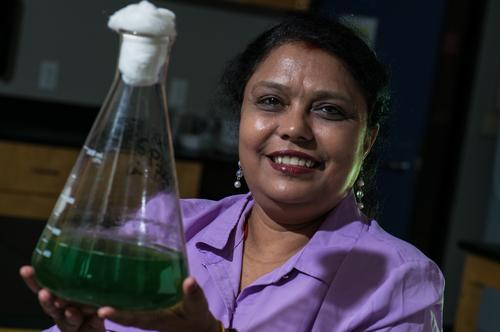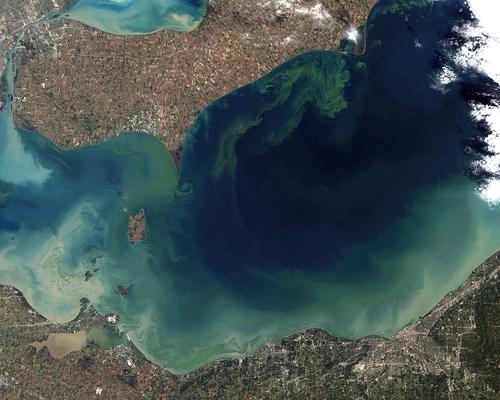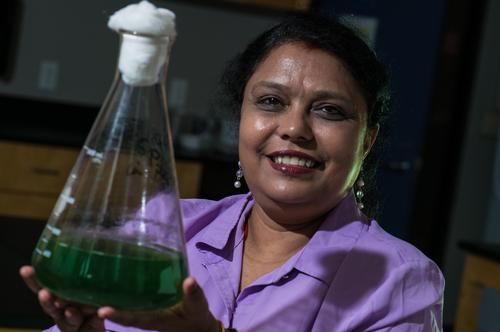June 12, 2015

Last month we told you about a scheme by scientists to grow algae for biofuel from polluted rivers and lakes, while also giving local farmers a side business. That Western Michigan University team's work isn't alone. Similar research in this area was presented this spring by a team at Rice University. Their study found that some algae strains can remove more than half of the nutrient pollution from municipal wastewater streams.

Pollution is a major problem that's not getting any better. The US Environmental Protection Agency reports that nutrient pollution from nitrogen and phosphorus, the two main components of chemical fertilizers, is one of the most expensive to deal with, most challenging, and most widespread of environmental problems in the US. Since there's no cost-effective current method for removing nitrates or phosphorous from treated water in large volumes, using those nutrients to also grow algae could solve both problems.
The Western Michigan University team had looked at the feasibility of growing algae that feed off untreated farm fertilizer runoff for biofuel, since the plants consume excess nitrogen and phosphorus. In their scheme, existing algae-growing systems for biofuel would be downsized for easier operation, almost completely automated, and capable of working remotely in locations beyond the power grid. In parallel, the five-month Rice University study found that oil-rich algal strains could be easily grown in municipal wastewater at a Houston, Texas treatment plant. At the same time, more than 50% of phosphorous and more than 90% of nitrates could be removed from the water.

The Rice University study's lead author, Meenakshi Bhattacharjee, faculty fellow in the biosciences department, said interest in algae for biofuels cooled off as the algae-producing industry targeted low-volume, higher-value end-products such as pharmaceuticals, nutritional supplements, and cosmetics. Those producers remain heavily dependent on chemical fertilizers, which puts them in competition with farmers for fertilizers and lowers profit margins.
Despite many efforts to develop biofuel from algae, the technology has suffered from high capital costs and high water usage. This has made it difficult to compete on price with other fuels, and if scaled up it could place unsustainable demands on nutrient, water, and energy resources, according to a 2012 National Research Council report. That report also suggests that wastewater-based cultivation could give the industry the sustainability it needs.
The Rice team wants to pursue additional research to determine if wastewater-based algae growing operations can be cost-effective and under what circumstances, such as temperature and starting levels of nitrogen and phosphorous.
MORE FROM DESIGN NEWS: Researchers Take Algae From Pollution to Biofuel
MORE FROM DESIGN NEWS: Algae-Based Biofuel Goes Commercial-Scale
Ann R. Thryft is senior technical editor, materials & assembly, for Design News. She's been writing about manufacturing- and electronics-related technologies for 27 years, covering manufacturing materials & processes, alternative energy, and robotics. In the past, she's also written about machine vision and all kinds of communications.
Design & Manufacturing Canada, the largest advanced design and manufacturing trade show serving Canada, will take place in Toronto, June 16-18, 2015. Learn more here.
About the Author(s)
You May Also Like



